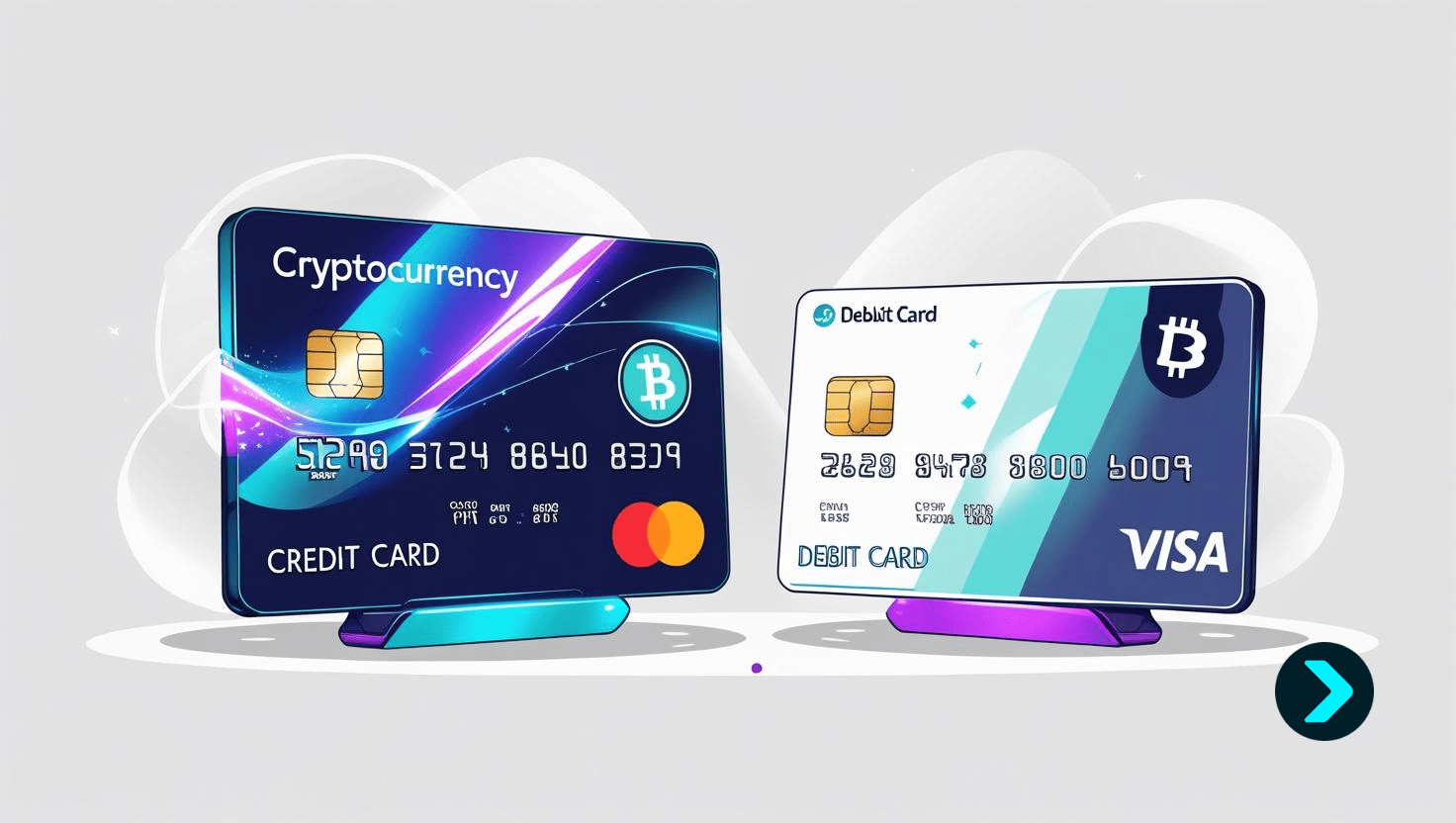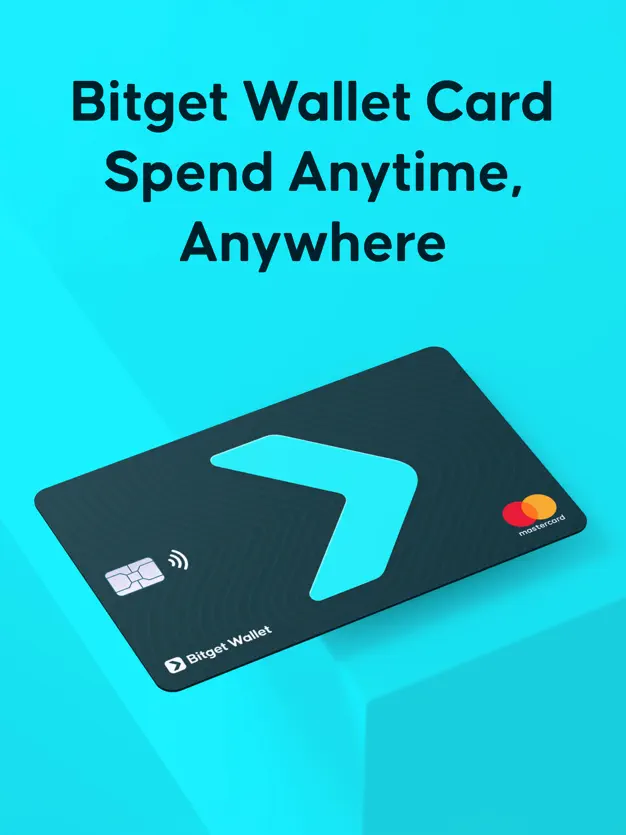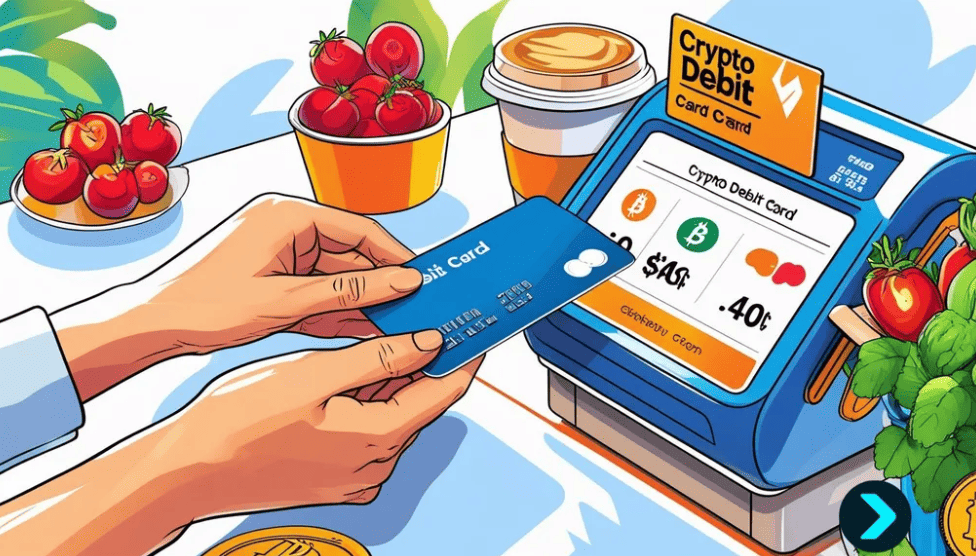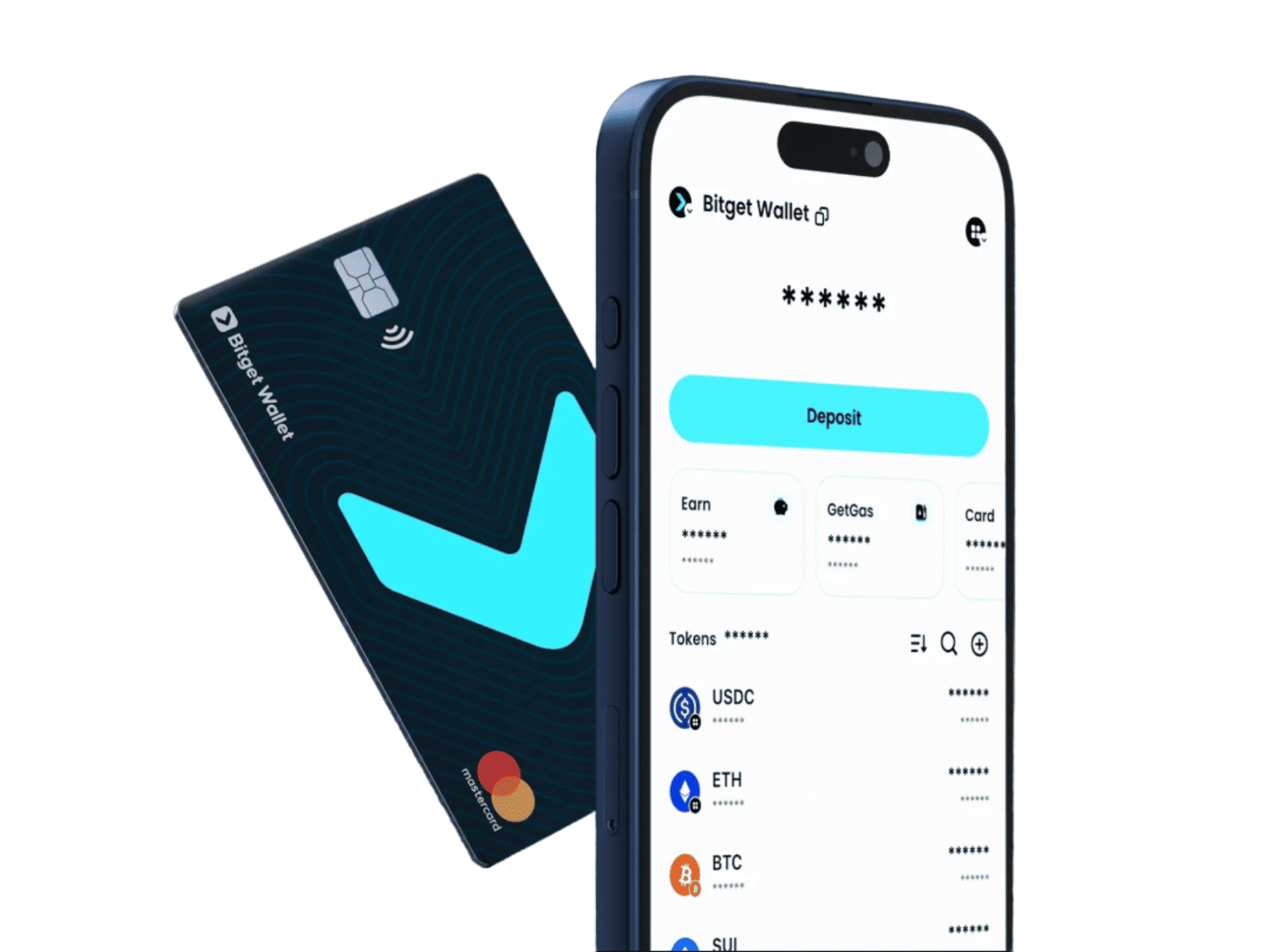Crypto Credit vs Debit Cards: What's the Difference?

Crypto credit vs debit cards is a hot topic in 2025 as more people integrate digital assets into everyday spending. These cards are becoming increasingly popular, allowing users to pay with crypto while benefiting from features traditionally found in fiat-based banking. But understanding the difference between crypto credit and debit cards is crucial—especially when it comes to spending limits, risk exposure, and potential rewards.
In short, crypto credit cards let you borrow against your assets or credit line, often offering perks like cashback in crypto, while crypto debit cards are prepaid with your own crypto funds—giving you more control but fewer incentives. Choosing the right card depends on your financial habits and risk tolerance.
This article breaks down the key differences between the two, how they work, and which option might be right for you. We’ll also explore how Bitget Wallet supports crypto card solutions that bridge convenience, control, and DeFi utility.
Key Takeaways
- Crypto credit cards offer borrowing and rewards but may carry repayment risk and require collateral or credit checks.
- Crypto debit cards use your existing crypto balance for transactions, offering greater control and transparency.
- Bitget Wallet supports non-custodial crypto card integration, giving users access to both flexibility and security in their spending.
What Is a Crypto Credit Card?
How Crypto Credit Cards Work
A crypto credit card functions similarly to a traditional credit card. You’re granted a line of credit in fiat currency (e.g., USD or EUR), which you can spend anywhere that accepts Visa or Mastercard. At the end of the billing cycle, you repay what you borrowed—sometimes with the option to use cryptocurrency.
What makes it “crypto” is the reward structure. Instead of points or cashback in fiat, many of these cards offer rewards in BTC, ETH, or platform-native tokens. Some cards may also allow you to stake tokens to unlock higher reward tiers or benefits.
Examples include cards issued by crypto exchanges or platforms like Crypto.com, Binance, or Nexo—each offering varying APRs, spending limits, and loyalty incentives.
Pros and Cons of Crypto Credit Cards
| ✅ Earn crypto rewards on daily purchases | ❌ Subject to interest rates and late fees |
| ✅ Helps build traditional credit score | ❌ Requires credit approval or collateral |
| ✅ May offer perks like airport lounge access | ❌ Rewards depend on market volatility (value may drop) |
| ✅ Spend in fiat while accumulating crypto | ❌ Not ideal for those seeking strict spending discipline |
Crypto credit cards are a good fit for users comfortable with borrowing, repaying monthly, and who want to passively earn crypto through regular spending. But the added complexity of interest charges and crypto volatility means they require responsible usage.
What Is a Crypto Debit Card?
How Crypto Debit Cards Work
A crypto debit card is linked directly to your crypto wallet and enables you to spend cryptocurrency like cash. At the point of sale, your selected crypto (e.g., BTC, ETH, or stablecoins) is automatically converted into fiat (USD, EUR, etc.), allowing seamless transactions anywhere traditional debit cards are accepted.
These cards follow a prepaid model, meaning you can only spend what’s already in your wallet. There’s no borrowing, no interest, and no credit checks, making them highly accessible and transparent.
Pros and Cons of Crypto Debit Cards
| ✅ Spend only what you own — zero debt risk | ❌ May require staking to unlock rewards or fee discounts |
| ✅ No credit checks or approval needed | ❌ Fewer perks compared to credit cards |
| ✅ Real-time crypto-to-fiat conversion at checkout | ❌ Transaction or network fees may apply |
| ✅ Works globally via Visa/Mastercard networks | ❌ Limited token support on some platforms |
Crypto debit cards offer a simple, secure, and direct way to use crypto in real life, especially for those who prefer control over spending without the risks of interest or late fees. They're especially useful for people living off crypto or exploring decentralized finance (DeFi) tools with real-world usability.
Read more: What Is a Crypto Debit Card and How Does It Work?

What Are the Key Differences between Crypto Credit and Debit Cards?
Crypto credit and debit cards may look alike, but they serve very different user needs. While both allow you to spend cryptocurrency through a physical or virtual card, their funding models, risk levels, and user requirements differ significantly. Here's a concise breakdown:
- Crypto credit cards allow users to borrow against a line of credit or collateral, offering attractive rewards in crypto but requiring repayment and often a credit check.
- Crypto debit cards use funds already held in your wallet, offering more spending control with minimal risk and fewer approval steps.
Below is a direct comparison to help you choose the right fit for your crypto lifestyle:
| Spending Source | Credit (borrowed) | Prepaid (your own crypto) |
| Credit Check | Required | Usually not needed |
| Debt Risk | High — late fees, interest possible | None — no borrowing involved |
| Rewards | High (cashback in crypto, bonuses) | Moderate (often requires staking) |
| Staking Requirement | No | Sometimes required for rewards/perks |
| User Type Fit | Credit-experienced users, reward seekers | Crypto holders, beginners, risk-averse |
Ultimately, the right card depends on your goals. If you want to earn rewards and don’t mind managing debt, a crypto credit card may suit you. If you prefer full control and simple crypto spending, a debit card is the better option.
Why Bitget Wallet Card Stands Out?
Among the many options available in the crypto card space, the Bitget Wallet Card distinguishes itself through its legal infrastructure, seamless wallet integration, and highly competitive fee model. Unlike most crypto cards that act as third-party extensions, Bitget's solution is directly backed by its wallet ecosystem — allowing users to enjoy smoother KYC, native crypto-to-fiat conversion, and a host of financial perks.
Here’s why the Bitget Wallet Card is one of the most compelling choices :
✅ Sign Up, Verify, Earn: Complete KYC and get $5 cashback, no strings attached.
✅ Extra financial perks: Enjoy up to 8% APY on staked stablecoins (region-based), plus cashback bonuses during the first 30 days.
✅ Lowest fees on the market: Only 1.7% comprehensive fee, compared to 2–3% for most competitors, with zero top-up or monthly charges.
✅ Legally issued: Through official Mastercard in the EU and Visa in Asia, making it one of the few truly licensed cross-region crypto cards.
✅ Seamless payment experience: Integrated with Google Pay and Apple Pay, enabling NFC tap-to-pay at any Mastercard/Visa terminal.
✅ Native crypto-to-fiat conversion: Instantly converts crypto at the moment of transaction, removing manual steps or delays.
👉 Ready to experience the future of crypto payments?
Get started with the Bitget Wallet Card today and enjoy low fees, instant crypto-to-fiat spending, and exclusive rewards — all backed by a trusted Web3 wallet.
🔗 Download Bitget Wallet and apply in minutes.

Crypto Credit vs Debit Cards: How to Choose the Right One?
Consider Your Financial Habits
Your personal spending style is the first clue to choosing between a crypto credit or debit card.
- If you're a frequent spender who pays off balances consistently and wants to maximize rewards, a crypto credit card may be ideal. These cards often offer attractive cashback in BTC, ETH, or platform tokens—especially for high-volume users.
- If you prefer budgeting, avoiding debt, and want to maintain full control of your crypto assets, a crypto debit card is a better fit. You’ll only spend what you own, minimizing risk in volatile markets.
Compare Fees, Limits, and Requirements
Before choosing a card, always compare the fine print. Here are key areas to evaluate:
- Fees: Look out for annual fees, ATM withdrawal charges, foreign transaction fees, and network conversion fees. Credit cards often carry interest rates or late payment penalties, while debit cards may charge network or top-up fees.
- Limits: Check for daily spending or withdrawal limits, which vary between cards. Credit cards may offer higher limits, while debit cards may restrict usage based on wallet balance or KYC level.
- Staking & Eligibility: Some cards require staking platform tokens (e.g., BGB, CRO) to unlock full benefits. Credit cards might also require credit checks or collateral deposits, especially if offered through centralized platforms.
By aligning your financial habits with each card’s features—and reviewing the cost structures—you’ll be better positioned to choose a crypto card solution that matches your goals.
Where Can You Use a Crypto Credit or Debit Card?
How to Use a Crypto Credit Card in the Real World?
Crypto credit cards are designed to fit seamlessly into everyday life. They’re typically issued in partnership with Visa or Mastercard, meaning you can use them anywhere those networks are accepted—both online and in physical stores.
- Usage: Works like a traditional credit card for shopping on Amazon, paying for a Netflix subscription, booking flights with airlines, or hailing rides with Uber.
- Main Difference: Earns crypto rewards (like BTC, ETH, or native tokens) instead of traditional cashback or points.
- Premium Perks: Offers benefits such as airport lounge access, travel insurance, and staking-based bonuses.
- Highlight: Combines the convenience of credit card spending with the value of cryptocurrency integration and Web3 functionality.

How to Use a Crypto Debit Card in Daily Life?
A crypto debit card works like any traditional debit card—but instead of pulling from a fiat bank account, it draws funds from your crypto wallet. At the point of sale, it automatically converts your crypto into local currency, enabling easy use at:
- Restaurants and cafés
- Retail outlets and grocery stores
- Gas stations and pharmacies
- ATMs for on-demand fiat cash withdrawals
This makes it a practical on/off ramp for crypto holders looking to spend directly without first converting assets through an exchange.

Bitget Wallet Card – A Real Example
The Bitget Wallet Card is a leading example of this functionality:
- Supports both online and offline spending via Visa
- No top-up fees — spend directly from your wallet
- Real-time conversion — pay in fiat using your digital assets
- Low transaction fees — ideal for regular use
- Fully integrated with Bitget Wallet — enabling full self-custody and easy management
Start spending your crypto instantly — Download Bitget Wallet and request your card today.

FAQs: Crypto Cards Explained
Do I need a crypto balance to use credit cards?
Not necessarily. Most crypto credit cards operate on a fiat credit line, meaning you borrow in fiat and repay in fiat. However, rewards are often paid in crypto (e.g., BTC, ETH), and some platforms may offer crypto-collateralized credit options.
Can I earn cashback in Bitcoin?
Yes. Many crypto credit cards and some debit cards offer cashback or rewards in Bitcoin or other cryptocurrencies. The amount and type of crypto rewards depend on the platform and whether you meet certain requirements, such as staking or spending thresholds.
Is KYC required for all crypto cards?
In most cases, yes. Both credit and debit crypto cards issued by regulated providers typically require Know Your Customer (KYC) verification. This includes identity checks to comply with anti-money laundering regulations.
Can I withdraw cash with both types?
Yes. Both crypto credit and debit cards can be used at ATMs for fiat withdrawals, provided the card is supported by a global network like Visa or Mastercard. Be sure to check the withdrawal fees and limits for your specific card.
What happens if crypto value drops?
For debit cards, if your wallet balance is in volatile assets, the value available for spending could decrease. For credit cards, if you're using crypto as collateral (in the case of crypto-backed credit), a price drop could trigger a margin call or liquidation. It's important to understand how your card is funded and whether your assets are exposed to volatility.
Final Thoughts
When it comes to crypto credit vs debit cards, understanding the difference can make or break your experience with digital payments. Crypto credit cards are ideal for those who want to earn high rewards and are comfortable managing repayments. In contrast, crypto debit cards offer a more controlled and low-risk way to spend your digital assets—perfect for beginners and everyday users.
No matter which suits your lifestyle, the Bitget Wallet provides a complete crypto payment solution. It supports both credit-backed and prepaid use cases with integrated security, convenience, and powerful rewards.
Use Bitget Wallet Card to enjoy secure, reward-rich crypto payments—whether you prefer prepaid convenience or credit-backed rewards.
Apply for Bitget Wallet Card Right Now!
If you're looking for a legally issued crypto debit card with industry-low fees, instant crypto-to-fiat conversion, and seamless integration with your wallet and mobile payments — the Bitget Wallet Card is your best bet in 2025.
- ✅ Get $5 free just for verifying your account — no strings attached
- ✅ Enjoy just 1.7% total fees — lower than 90% of the market
- ✅ Stake stablecoins and earn up to 8% APY
- ✅ Get extra cashback in your first 30 days
- ✅ No top-up or monthly fees, and quick KYC approval
Ready to simplify your crypto spending?
Download Bitget Wallet and apply for your first crypto debit card in minutes.
Risk Disclosure
Please be aware that cryptocurrency trading involves high market risk. Bitget Wallet is not responsible for any trading losses incurred. Always perform your own research and trade responsibly.
- How to Apply for a Crypto Mastercard2026-01-05 | 5 mins
- How to Apply for a Crypto Visa Card and Start Spending Crypto Worldwide2026-01-02 | 5 mins
- How to Top Up Your Crypto Debit Card with USDT2025-12-29 | 5mins

















